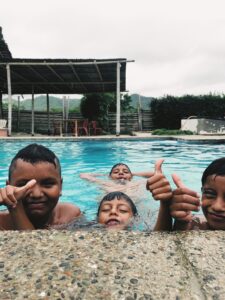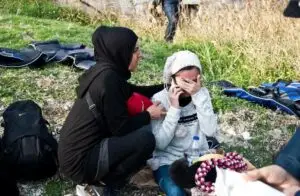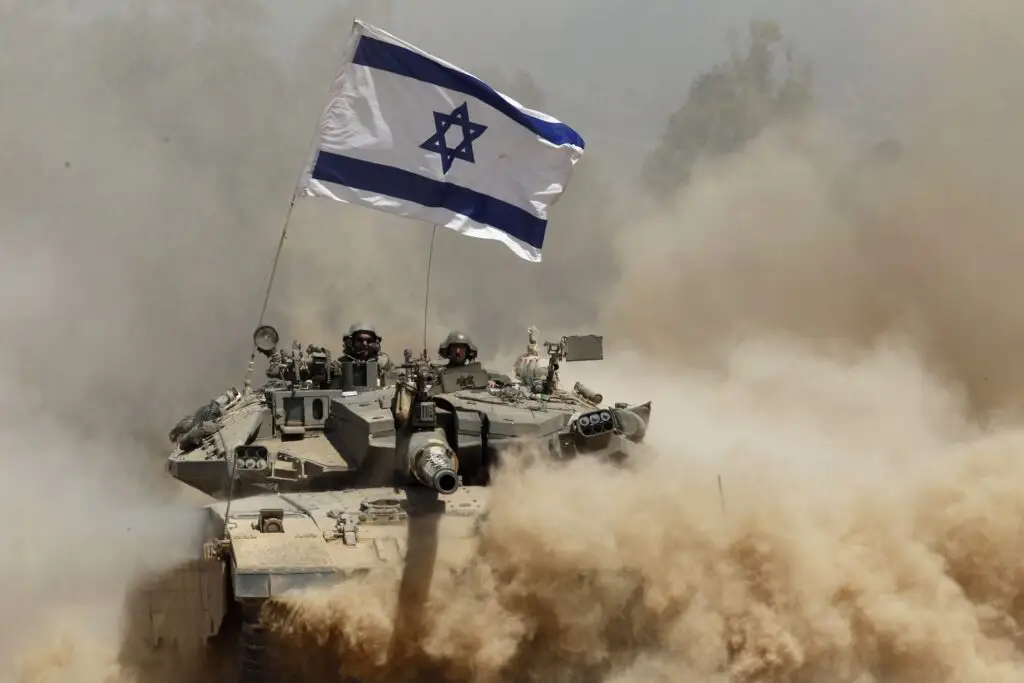Everything written in these pages is based on personal experience. Overall, this is the way I remember what happened. And everything, of course, is based on actual events. Unfortunately.
“Did you save any lives down there?” asks Berg.
Everything I’ve told him about has involved death and mutilation. The question surprises me. Most of Berg’s insights surprise me. They force me to think differently. Positively. Guess that’s why he’s a psychologist.
I hesitate, but not long. “Lots of times,” I answer. And continue, “Everything down there was in disarray. There was a new regime and new laws for every mile. Getting away with murder was easy. It was harder to get away with theft.”
Half-way between Kfarshouba and 4-2 1200 GMT (Lebanon)
The boy couldn’t manage to control his hiccups. Snot and tears had formed long, dirty stripes down his cheeks. He was wearing a tattered t-shirt and khaki pants. Naturally, everything was dirty and dusty. Behind him stood the donkey chewing on the leather straps that the boy steered the animal with. His gear was simple, but I saw that
the homemade saddlebags had lots of pockets. The idea was to have these bags filled with goods. Right now they were empty. To the left of us stood five Israeli soldiers. All wearing the characteristic brown IDF uniform. Their appearance varied, but all of them were dirty and sported beards. All had the usual M16 rifles over their shoulders. The magazines were in place, but the safety catches were on.
Friend or foe?
They kidded around with me. Just like people do when they’re unsure whether they’ve done something wrong. Whether I’m friend or foe.
“What happened here?” I asked the boy, even though I knew damn well what had happened.He hiccupped again, couldn’t answer right away. He was small, scared and far from home. I began to wonder where his parents were. Even though children were allowed to run around freely down here, it was usually only shepherds and half-grown boys who travelled so far outside the towns. The war hadn’t made the situation any different.
“They stole my things,” he said at last.
Of course.
Continuously confrontations
I turned toward the soldiers and showed them my two open palms and shrugged my shoulders in a resigned sigh. I felt that I had to get control of myself. The anger grew and smouldered in my chest. After the first wave of the invasion has passed by us, new confrontations arose continuously. Between Israel and the Haddad militia on one side and the civilian population and us on the other.
“Give back what you took,” I said, and had actually thought about asking them if they had taken something and if they would give it back. But I couldn’t bring myself to do it.
It was warm and dry on the gravel road with nothing to provide shade from the sun. At this time of day the sun shone right over our heads.
The loss of a boy
They had stopped the boy right after a bend and up on a stone bridge. If I had turned around, I would have seen a rather barren area. Four meters below us lay a small riverbed that probably was filled with water during the rainy season. Now there wasn’t so much as a drop of water below us.
Weeks would have gone by before the boy had been found down there. Just one more of the innumerable victims of war. Hanssen seemed relaxed standing just a few steps behind me, but I knew that he was just as nervous as I was. Neither of us was near our pistols, and we hadn’t even taken our AG3’s from the station.
The radio message had come via one of the forward positions. All movements in the area were being observed. Both visible and hidden observation posts kept the area continually under surveillance 24 hours a day.
Hanssen and I weren’t far away, and we got there just before the soldiers turned themselves into murderers.
Israeli soldiers are highly disciplined. It may not look like it when they walk around with their shirttails hanging out of their pants and their shoelaces untied. Shoe shining is a foreign concept to them.
But under the rumpled clothes they are outstanding soldiers. Decades of war has taught them that. Usually a group of soldiers like this wouldn’t cause us any trouble. But the fact that they were travelling on foot was unsettling. Israeli soldiers almost always drove. Which is why the observation post reported them.
I looked more closely at them. The beard and the markings on the uniform belonged to an arm of the Israeli army that was sent in after the worst battles were over. Their job was to clear away corpses and trash, and make sure that all visible signs of war were eliminated. This was not exactly a highly sought-after job, of course, and it usually was carried out by both light and hard core criminals who could make themselves useful in this way.
One after the other, their dirty fists revealed watches, calculators and other items. The boy pulled himself together and began to stuff the merchandise into the pockets of the saddlebags. He worked fast, afraid that we would withdraw our order in the next second. Finally he had gotten back most of his things and looked at me with his brown eyes. His tears were gone, but his body was still shaking.
“It’s OK. Where are you going?” I asked.
He pointed toward Kfarshouba. I turned toward the soldiers.
“And you?” I asked one of them.
It had probably never crossed their minds to protest or try to resist.
I realize that now. They just hoped that we would be finished with
them soon.
We were.
One of them pointed in the opposite direction of where the boy was going. That suited me fine. That meant that we were headed in the same direction.
“Go!” I said.
A kid trying to survive in the middle of a war
They didn’t hesitate to move on down the road. The three of us stood and watched them. Hanssen, the boy and me. Hanssen relaxed his shoulders, turned toward me and said, “Good thing we checked up on them.”
I nodded.
And while we watched, the boy climbed onto his donkey. A little kid just trying to survive in a land ravaged by war. I tried not to think about what would have happened if we hadn’t been there that day. I saw in Hanssen’s eyes that he was thinking the same thing.
Wishing you a quiet and peaceful weekend

What is a lifetime, really?
Twenty good years? A good friend of mine once said while walking in the mountains of Gran Canaria.“Knut, we have twenty good years left. Use

How to protect yourself from your PTSD, when the world is on fire
(It is war. And it is mine. ) The headlines that meet me today are about the war in Ukraine. Alarms going off, people fleeing,

The thin film of civilization
The thin film of civilization This picture are taken on Lesvos. Her husband and baby drowned on the way over from Turkey. This is a
